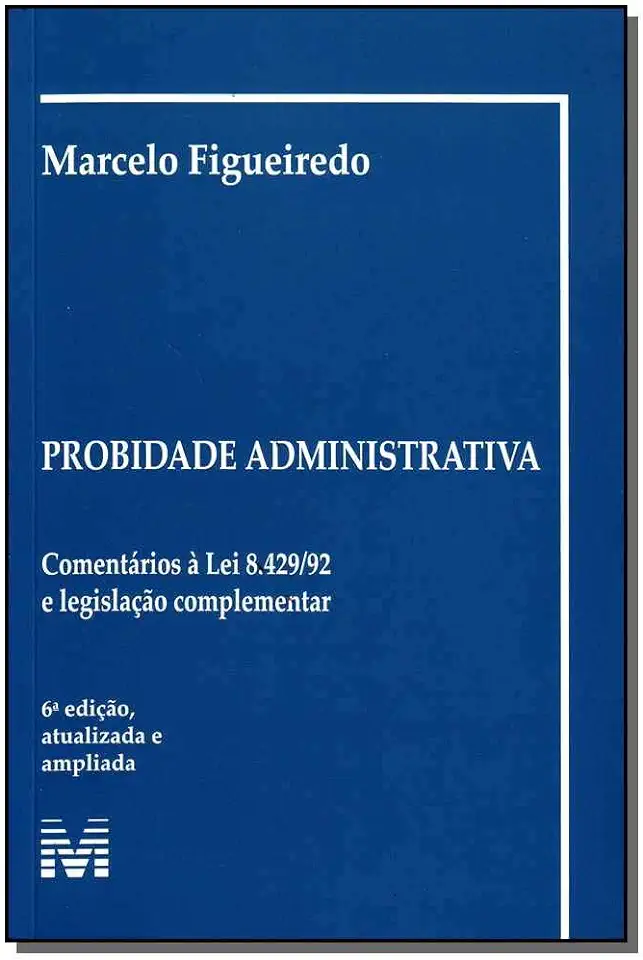
Administrative Probity - Marcelo Figueiredo
Administrative Probity: A Comprehensive Guide to Ethical Governance
In a world grappling with complex challenges and increasing demands for transparency, Marcelo Figueiredo's book, "Administrative Probity: A Comprehensive Guide to Ethical Governance," emerges as an essential resource for leaders, policymakers, and individuals committed to fostering integrity and accountability in public administration. This comprehensive and thought-provoking book provides a roadmap for promoting ethical practices, preventing corruption, and ensuring the effective functioning of public institutions.
Understanding Administrative Probity
Administrative probity refers to the principles, practices, and systems that uphold ethical conduct and integrity in public administration. It encompasses a wide range of issues, including preventing corruption, promoting transparency, ensuring accountability, and fostering a culture of ethical behavior within public institutions.
Key Themes Explored in the Book
Ethical Foundations of Public Administration: Figueiredo delves into the philosophical and theoretical underpinnings of administrative probity, exploring the importance of values such as integrity, transparency, and accountability in shaping public policy and decision-making.
Corruption and Its Consequences: The book provides a comprehensive analysis of the causes and consequences of corruption in public administration, highlighting its detrimental impact on economic development, social justice, and public trust.
Promoting Transparency and Accountability: Figueiredo emphasizes the significance of transparency and accountability as key pillars of administrative probity. He discusses various mechanisms and strategies to enhance transparency, including open data initiatives, freedom of information laws, and public participation in decision-making processes.
Strengthening Ethical Leadership: The book underscores the crucial role of ethical leadership in fostering a culture of integrity within public institutions. Figueiredo explores the qualities and competencies required for ethical leaders and provides practical guidance on promoting ethical behavior at all levels of public administration.
Institutional Reforms for Probity: Figueiredo proposes a range of institutional reforms to enhance administrative probity, including strengthening anti-corruption agencies, improving public procurement practices, and implementing conflict of interest regulations.
International Perspectives on Administrative Probity: The book draws on international case studies and best practices to provide a global perspective on administrative probity. Figueiredo examines successful initiatives from different countries and regions, offering valuable insights for policymakers and practitioners.
Why You Should Read This Book
"Administrative Probity: A Comprehensive Guide to Ethical Governance" is a must-read for anyone committed to promoting ethical practices and ensuring the integrity of public institutions. With its comprehensive coverage of key issues, practical recommendations, and thought-provoking insights, this book serves as an invaluable resource for leaders, policymakers, public administrators, and anyone interested in fostering good governance and accountability.
Conclusion
In an era where public trust in institutions is under scrutiny, Marcelo Figueiredo's book, "Administrative Probity: A Comprehensive Guide to Ethical Governance," offers a timely and essential guide to promoting ethical conduct and integrity in public administration. By embracing the principles and practices outlined in this book, we can work towards building a more transparent, accountable, and ethical public sector that serves the best interests of society.
Enjoyed the summary? Discover all the details and take your reading to the next level — [click here to view the book on Amazon!]